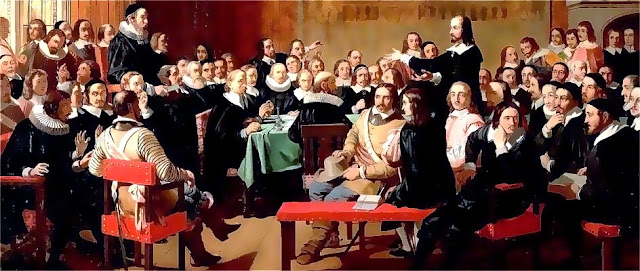By Pastor Benjamin Glaser - Posted at Thoughts from Parson Farms:
How the Hypostatic Union Grants Assurance to BelieversToday in our look at the Larger Catechism we will be spending time considering more about what it means that Jesus Christ is our Mediator. We’ve defined that word enough to be able now to dig deeper into why it matters and to see how it effects our daily walk and life. Some people like to look down on doctrine, saying things like “it’s a relationship, not a religion”. Yet, the problem with thoughts like that is when you utter it you are standing on the shoulders of men who spent a lot of time in concert with the Church in the blessed work of faith seeking understanding. There’s a bit of Paul’s concern at Corinth and Peter’s general worry to those he is writing to in his first epistle. Milk is good, but it’s not filling, it doesn’t make you stronger. There should be a desire to learn more and more of Jesus and His labors on our behalf. Can you get too deep? Sure, I’ll grant it’s possible in the sense of jumping into a pile of wires can entangle oneself, but unravelling them and finding out which cable is for which purpose has its own reward. As we get into the Q/A’s for this week read them, prayer over them, and let’s examine them in turn:
Q. 40. Why was it requisite that the Mediator should be God and man in one person?
A. It was requisite that the Mediator, who was to reconcile God and man, should Himself be both God and man, and this in one person, that the proper works of each nature might be accepted of God for us, and relied on by us, as the works of the whole person.
Q. 41. Why was our Mediator called Jesus?
A. Our Mediator was called Jesus, because He saves His people from their sins.
Q. 42. Why was our Mediator called Christ?
A. Our Mediator was called Christ, because He was anointed with the Holy Ghost above measure; and so set apart, and fully furnished with all authority and ability, to execute the offices of prophet, priest, and king of His church, in the estate both of His humiliation and exaltation.
